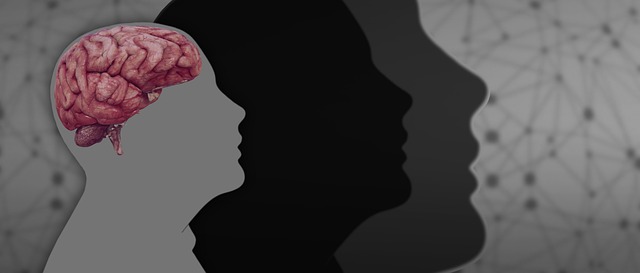Trauma significantly impacts senior citizens, exacerbating health and mental health issues. Littleton Geriatrics Therapy offers specialized services, including Stress Management Workshops, Culturally Sensitive care, and Community Outreach programs to reach isolated seniors. Their holistic approach combines evidence-based practices like Social Skills Training and Emotional Intelligence development in a non-judgmental environment. By addressing trauma's multifaceted effects, they promote personal growth, equip clients with coping mechanisms, and improve the well-being of elderly individuals.
Trauma, often overlooked in elderly care, can have profound effects on seniors’ well-being. This article delves into the complex issue of trauma support services specifically tailored for older adults. We explore the significant role that specialized centers like Littleton Geriatrics Therapy play in addressing traumatic experiences unique to this demographic. Through a comprehensive approach, we discuss strategies for developing and enhancing trauma support systems, ensuring elderly individuals receive the care they deserve.
- Understanding Trauma and Its Impact on Seniors
- The Role of Littleton Geriatrics Therapy in Trauma Support
- Developing Comprehensive Trauma Support Services for Elderly Individuals
- Enhancing Care: Best Practices and Future Directions for Trauma Support Services Provision
Understanding Trauma and Its Impact on Seniors

Trauma can significantly impact seniors, often exacerbating existing health issues and mental health concerns. Understanding trauma’s far-reaching effects is crucial in providing effective support for this vulnerable population. Many older adults experience traumatic events throughout their lives, such as abuse, neglect, or the loss of loved ones. These experiences can lead to complex reactions, including anxiety, depression, and even physical symptoms like chronic pain and weakened immune systems.
The impact of trauma is further complicated by age-related changes in the brain and body. Littleton Geriatrics Therapy recognizes that seniors may have unique needs when addressing traumatic memories and emotions. They offer specialized services tailored to this demographic, including Stress Management Workshops Organization to equip older adults with coping strategies, and Cultural Sensitivity in Mental Healthcare Practice to ensure inclusive and respectful care. Additionally, their Community Outreach Program Implementation aims to reach isolated seniors, providing them with the resources and support they need to heal and thrive.
The Role of Littleton Geriatrics Therapy in Trauma Support

Littleton Geriatrics Therapy offers specialized support for individuals dealing with trauma, focusing on holistic healing and rehabilitation. Their expert team provides a safe and non-judgmental environment, tailored to meet the unique needs of each client. Through various therapeutic approaches, including Social Skills Training and Emotional Intelligence development, the therapy helps individuals process their traumatic experiences and build resilience. By integrating evidence-based practices, the clinic equips clients with effective coping mechanisms for stress management, enabling them to regain control over their lives.
This therapy goes beyond traditional treatment, fostering a sense of community and empowerment. It recognizes that trauma can impact every aspect of an individual’s life, from social interactions to emotional regulation. By addressing these areas, Littleton Geriatrics Therapy facilitates profound personal growth and helps clients develop the tools needed to thrive despite their past experiences.
Developing Comprehensive Trauma Support Services for Elderly Individuals

Developing comprehensive trauma support services for elderly individuals is a critical step towards ensuring their well-being and fostering a sense of security. As the population ages, it becomes increasingly important to address the unique challenges they face, especially those who have experienced traumatic events. Littleton Geriatrics Therapy recognizes the profound impact trauma can have on older adults, often exacerbating existing health issues and cognitive decline.
Therefore, integrating specialized services tailored to this demographic is essential. This involves implementing crisis intervention guidance programs that are easily accessible and provide immediate support during times of acute distress. Public awareness campaigns development focused on recognizing and addressing trauma in the elderly population can also help reduce stigma and encourage individuals to seek assistance. Furthermore, coping skills development through therapy and support groups equips seniors with effective tools to manage traumatic memories and emotions, promoting resilience and improving their overall quality of life.
Enhancing Care: Best Practices and Future Directions for Trauma Support Services Provision

Trauma support services are increasingly recognizing the importance of enhancing care and transforming traditional approaches to meet the complex needs of individuals who have experienced trauma. Best practices in this realm involve creating safe, non-judgmental spaces where clients feel empowered to share their stories. Incorporating evidence-based techniques such as mindfulness meditation has shown significant promise in helping individuals process traumatic memories and develop coping strategies. The integration of these practices not only improves clinical outcomes but also fosters a sense of community and belonging.
Looking towards the future, there is a growing need for innovative solutions that address not just the immediate effects of trauma but also the long-term challenges healthcare providers face. Mental illness stigma reduction efforts play a crucial role in encouraging help-seeking behaviors among individuals who have experienced trauma. Additionally, burnout prevention strategies for healthcare providers are essential to ensure they can consistently deliver high-quality care. By combining these approaches with evidence-based practices like mindfulness meditation, organizations such as Littleton Geriatrics Therapy can create comprehensive, holistic support systems that transform lives and build resilient communities.
Trauma support services for seniors, a crucial aspect of holistic care, can significantly enhance their quality of life. As discussed, understanding trauma and its unique impact on older adults is essential. Littleton Geriatrics Therapy has played a vital role in this domain, offering specialized geriatric therapy to address traumatic experiences. Moving forward, developing comprehensive trauma support services tailored to the needs of elderly individuals is imperative. By implementing best practices and learning from innovative approaches like those at Littleton Geriatrics Therapy, we can ensure enhanced care and improve the well-being of seniors who have experienced trauma.














